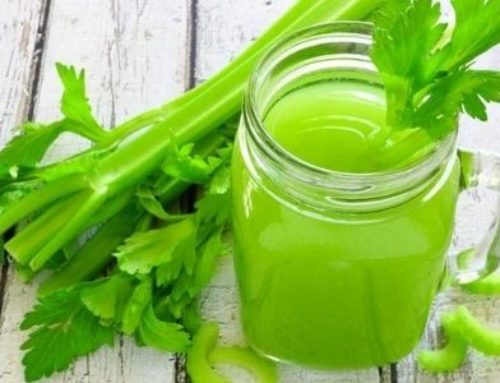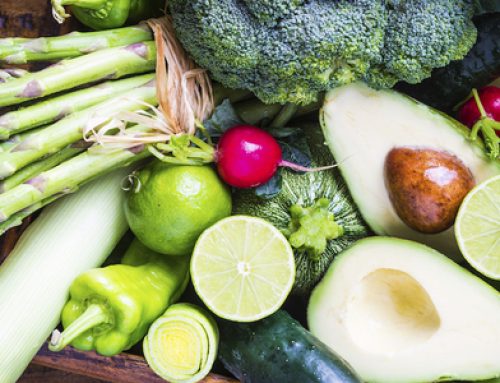
There are so many reasons to regularly eat healthy food. Munching on a ‘super’ foods diet may help you lose weight, prolong your life, increase your energy levels, boost your immune system, decrease your risk of developing chronic disease, help in managing stress and much, much more!
When it comes to eating a healthy diet, nothing is more important than good preparation and organisation. I’m sure you can recall those moments when you reached for ready-made foods or take away because the cupboards were bare and you’re tired after a long day at work with no idea what to feed the family.
One very important part of good organisation is a well stocked pantry; full of ‘super’ foods that are low in kilojoules, to help manage a healthy weight, and also packed full of vitamins, minerals and other health promoting compounds.
There isn’t a specific definition for a ‘super’ food and you’ll find many different opinions around on what foods end up with this prestigious title.
The foods that I’ve listed below are rich in vitamins and/or minerals, low in energy, high in antioxidants, polyphenols and other healthy promoting compounds, have had minimal processing, should be stored in the pantry and can be easily incorporated into meals and snacks.
Foods are good for us for many different reasons, so just because a food is not listed here, doesn’t mean it’s not ‘super’. These are my top 10 choices.
My Top 10
Spices
Spices are rich in polyphenols, a type of antioxidant. You need to eat a decent sized serve of them (not just a sprinkle) to get enough of these health promoting compounds. So use spices daily and as often as you can. Spices are also a great way of adding flavour to a meal without adding fat or sugar and excess energy, which is great if you’re watching your waistline. Check out this article – How to Add Flavour Without Adding Kilojoules
Dried Herbs
Dried herbs are a pantry essential. They can add lots of flavour to homemade pasta sauces and reduce your intake of salt and additives by avoiding bought pasta sauce in a jar. High in polyphenols, use them generously and regularly. I love adding them to marinades, roasted vegetables and on top of home made pizzas.
Seeds
Seeds include linseeds, sunflower, pumpkin, chia and sesame. In particular, linseed (flaxseed) and chia seeds are very rich in omega 3 fatty acids which are essential to good health and exhibit a range of health benefits from reducing cholesterol, inflammation and visceral (tummy) fat. If you are not a big fish eater, which is also a great source of omega 3, than make sure there are a few pantry containers dedicated to these little powerhouses. Sprinkle them over your porridge or breakfast cereal, throw them into homemade bread or use as a salad topper for added crunch.
Nuts
Nuts are a fantastic source of essential fats. Walnuts, in particular, are especially high in omega 3. Nuts are also a great source of fibre and can be used in so many different meals and snacks. You can create a snack bag full of nuts, seeds and dried fruit to munch on through the day. Add them to your muesli, sprinkle them over a salad, add them to a curry or stir fry and you can even incorporate them into your baking. Muesli slices and biscuits can be made that little bit healthier with the addition of nuts.
Oil
You should know by now that not all fat is bad for you. I always make sure I have plenty of extra virgin olive oil to use during cooking and for making my own salad dressings and sauces. Olive oil is a great source of monounsaturated and polyunsaturated fats which are really important for our health. Just remember to use oil in moderation. All fats are extremely energy dense and too much can increase our energy intake making weight loss and maintenance difficult.
Quinoa
Quinoa (pronounced ‘keen-wa’) is a bit of a buzz ingredient at the moment and for good reason. It is one of the only plant based sources of complete protein, and is a great source of fibre, phosphorous, magnesium and iron. As women, it can be difficult to ensure an adequate iron intake, particularly if you’re not a big meat eater, so quinoa is a great choice to include regularly in your diet. It can be used to in place of pasta, rice or cous cous as it’s great with currys and stews. I also love it in a salad with lots of fresh herbs and vegetables.
Oats
Oats are a brilliant little grain. They are rich in fibre and a compound called beta-glucan that helps reduce cholesterol reabsorption in the body, decreasing your risk of heart disease. They also have a low GI (glycemic index) making them great for keeping your blood sugar levels stable and keeping you fuller for longer. Meaning if you have them at breakfast time they can help stave off the mid-morning munchies.
Wheatgerm
Wheatgerm is extraordinarily rich in fibre and B vitamins (thiamin, riboflavin, niacin, folate and pyridoxine). B vitamins have a huge range of functions in the body, mainly the release of energy from food, particularly carbohydrates. Use it in baking by replacing 3-5 tablespoons of flour with wheatgerm, sprinkle it over your breakfast cereal or muesli, or add a tablespoon to a fruit smoothie.
Lentils
Lentils are a great source of dietary fibre and low GI carbohydrate. They are also very cheap and easy to cook up for a quick, budget friendly meal. Add flavours such as garlic, onion and cumin for a delish mash or try your hand at a traditional Dahl recipe.
Psyllium
Without adequate fibre in our diet, we can end up bloated, constipated and generally just feeling blah. Fibre not only helps maintain a healthy digestive system, it’s also great for reducing your cholesterol. Not to mention helping you feel fuller for longer, making it great if you are looking to lose weight. Psyllium husk is a great way to boost your fibre intake. Try adding a tablespoon to muesli, breakfast cereals and baked goods.
There you have it. No tropical berries from an island you’ve never heard of. Just 10 nutrient dense ingredients that can be found at almost any supermarket. Add these to your weekly meals and rest assured that you’re giving your diet a boost.
Not sure what foods should be taking up precious pantry and fridge real estate? We can help!
If you’d like further help with your nutrition please click below:





